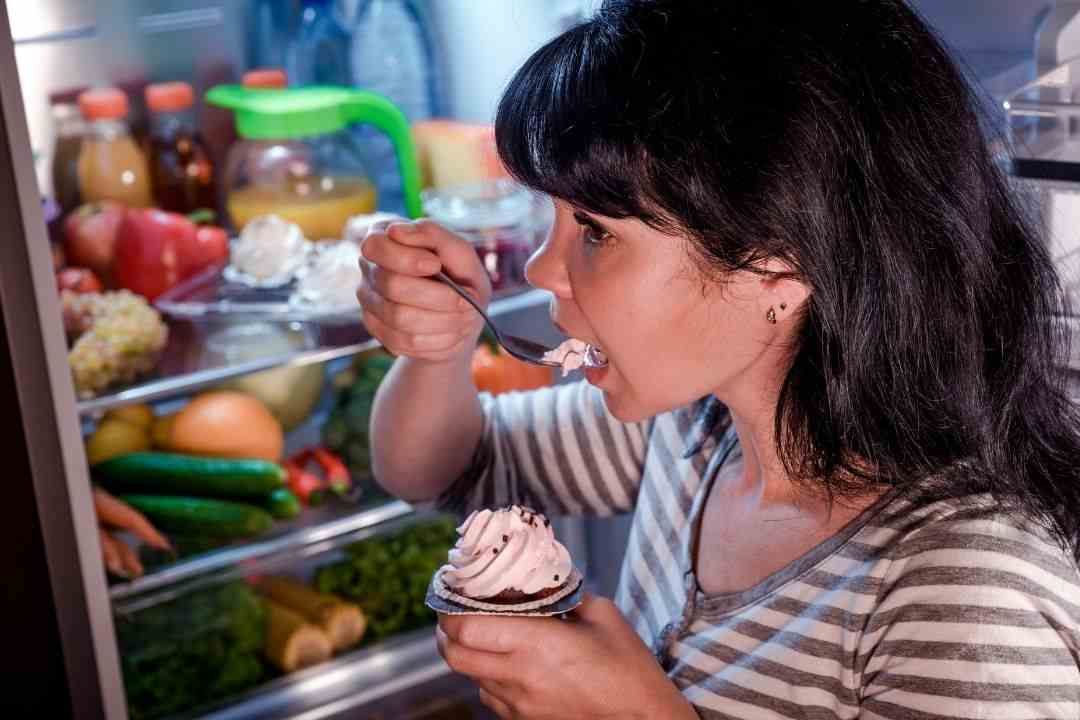Emotional Stress
Are you a stress eater? Here’s how to retrain your brain.
Scientists are still figuring out how and why people respond differently to stress. If you’re an emotional eater, here’s some advice on how to create a new “coping toolbox.”
You’ve probably heard someone point out that the word stressed is desserts spelled backward, as a way of explaining cravings for sweets when feeling emotionally frayed. But the stress response isn’t the same for everybody. While some people eat more or gravitate toward highly palatable, high-calorie foods when they’re under stress, others lose their appetites. And some people’s eating habits don’t change at all.
The reasons for the differences are complex. “Science suggests that in humans it’s the interplay between behavioral, environmental, and genetic factors, that determines someone’s susceptibility to stress eating,” notes Kimberly Smith, who studies eating behavior and is an assistant professor in the department of psychiatry and behavioral sciences at the Johns Hopkins University School of Medicine in Baltimore.

For many people, “the release of cortisol can increase appetite and food intake, especially for high-fat or high-sugar foods,” Smith says. While cortisol has many functions, it is widely known as a stress hormone because levels rise as a response to intense pressure or high anxiety—triggering hunger, fat storage, and decreased blood flow in brain regions that regulate food intake.
People with high dietary restraint who intend to limit food intake to manage their weight are also more susceptible to stress eating. “They might throw caution to the wind and lose their inhibition when they’re under stress,” says gastroenterologist Lawrence Cheskin, chair of nutrition and food studies at George Mason’s College of Public Health and coauthor of Weight Loss for Life.
“How you cope with stress also can increase your susceptibility if you have a passive or avoidant coping style,” Smith adds, “that can increase your vulnerability to stress eating.”:focal(652x167:653x168)/https://tf-cmsv2-smithsonianmag-media.s3.amazonaws.com/filer/ee/bc/eebc7565-839b-4a17-82ab-5f20a1bbf73f/h8cd2ygg-1501513898.jpg)
The nature of the stress effect
To some extent, stress is in the eye of the beholder, because people perceive stress differently. But there are distinct differences between the way acute and chronic stress affect appetite.
With acute stress (such as narrowly dodging a car accident or giving a presentation at work), appetite generally tends to decrease, notes Laura Holsen, a clinical neuroscientist and associate professor of psychiatry at Brigham and Women’s Hospital and Harvard Medical School.
With chronic or long-term stress (such as being in an unhappy marriage or ongoing work stress), appetite and food intake often increase. Levels of the hormone ghrelin, which triggers greater feelings of hunger, tend to “go up and stay up,” Holsen explains.
And levels of leptin a hormone that triggers feelings of fullness decrease after acute stress, especially among people whose weight is in the normal range, according to research. These hormonal shifts can rev up someone’s appetite and reduce their sense of satiety when they’re under stress, which could lead them to lose control of their eating. [Read more about the seven hormones that influence hunger.]
“Chronic stress also leads to over-activation of the HPA [the hypothalamic-pituitary-adrenal] axis, which can result in a chronic increase in cortisol, which increases appetite and the drive for food,” says Smith.
Meanwhile, habitual “emotional eaters” often experience a decrease in the activation of the reward circuity of the brain, research has found. As a result, they have “a blunted reward sensitivity to highly palatable foods, and the brain needs more high-fat, high-sugar foods to get a reward response, which continues the cycle of overeating,” Smith explains.
A similar study published in Physiology & Behavior found that women who are self-reported emotional eaters tended to eat more after completing stressful mental tasks if they experienced increases in their systolic blood pressure. By contrast, research published in a 2020 issue of Translational Psychiatry found that people with obesity whose cortisol levels spike and stay elevated for longer than expected when responding to acute stress consumed more food than people who are obese and have a low cortisol response. Cumulative lifetime stress also seems to influence stress-related eating. Women who had experienced more stress throughout life ate more M&M’s after participating in a stressful task (preparing and delivering a speech) than those who’d experienced less, according to a study in a 2023 issue of Appetite.
The birth of a coping mechanism
To some extent, the effects of stress on someone’s appetite may be a learned response, notes Cheskin. “If you grew up in an environment where when people were stressed, they turned to food, you might be more likely to emulate that in your own life.” If you have found that eating cookies or chips when you’re feeling stressed out helps you feel better, at least in the short term, it can become your go-to strategy.

Unfortunately, though, stress-related eating can create a perpetuating cycle. After all, consuming sweet foods or starchy foods raises levels of the feel-good brain chemicals serotonin and dopamine, says clinical psychologist Rachel Goldman, a clinical assistant professor in the department of psychiatry at the NYU Grossman School of Medicine. “Emotional eating serves a purpose. When you eat comfort foods, it immediately activates the reward center in the brain, which feels good.”
In a study in a 2022 issue of Foods, researchers had people participate in two different cognitive tasks on alternate days one designed to induce stress (an unsolvable anagram), the other to elicit relaxation (a mandala coloring page) then rate categories of foods based on what they’d prefer as a “thank you” snack. After the stress-inducing task, more people chose a high-fat, sweet snack a chocolate bar versus wholegrain crackers, potato chips, or a banana than they did after the relaxing task.
Plus, stress-related eating can distract you from the issues you’re grappling with. “It’s not a bad thing in and of itself but if it’s your only coping mechanism, or if it’s causing you distress or health problems, it can be problematic,” Smith says.
Over time, stress-related eating can lead to weight gain. Research has shown that depression and emotional eating predicted greater weight gain over a seven-year period. And a study in a 2022 issue of Public Health Nutrition found that perceived stress and emotional eating were associated with weight gain among healthy adults during the early COVID lockdown.
Getting a grip on stress-related appetite changes
“As with most habits, the solution is first to recognize the pattern—identify what triggers your [emotion-induced] eating episodes,” Cheskin says. “Once you see patterns, you can try to recognize the trigger before it leads you to the kitchen then introduce an alternative activity. Ask yourself: What can I do instead?” You could distract yourself from the urge to nosh by going for a walk, calling a friend, or reading something interesting, for example.
Goldman advises people to cultivate “a coping toolbox” with at least three tools such as engaging in mindfulness meditation, exercise, yoga, or writing about your feelings in a non-judgmental way that can be used to manage stress and help you feel more in control of your eating and your life. “Sometimes multiple tools are needed,” she says, “and your go-to tool for today may not be what works for you tomorrow.”
Also, “if you’re susceptible to stress eating, limiting the availability of high-fat, high sugar foods at home or work can help,” Smith says. This is an instance where out-of-sight and out-of-reach can force you to cultivate other coping strategies.
If you do have a habit of snacking mindlessly or overeating when you’re under stress, don’t beat yourself up about it. Instead, show yourself the same compassion that you’d give to a friend. Besides helping you feel better, a study in a recent issue of the International Journal of Behavioral Medicine found that exercising self-compassion improved people’s dietary choices after a stressful experience.
“There can be a lot of bad feelings associated with using food to cope with stress but it’s incredibly ingrained in our biology and our environment,” Holsen says. “Talking about it can normalize that this is a really common human experience that can only be a good thing.”
Source
https://www.who.int/news-room/questions-and-answers/item/stress
https://www.who.int/news-room/questions-and-answers/item/stress
https://www.hopkinsmedicine.org/health/wellness-and-prevention/tips-to-manage-stress-eating
https://www.health.harvard.edu/staying-healthy/why-stress-causes-people-to-overeat
https://www.nationalgeographic.com/premium/article/diet-stress-appetite-overeating-brain








































